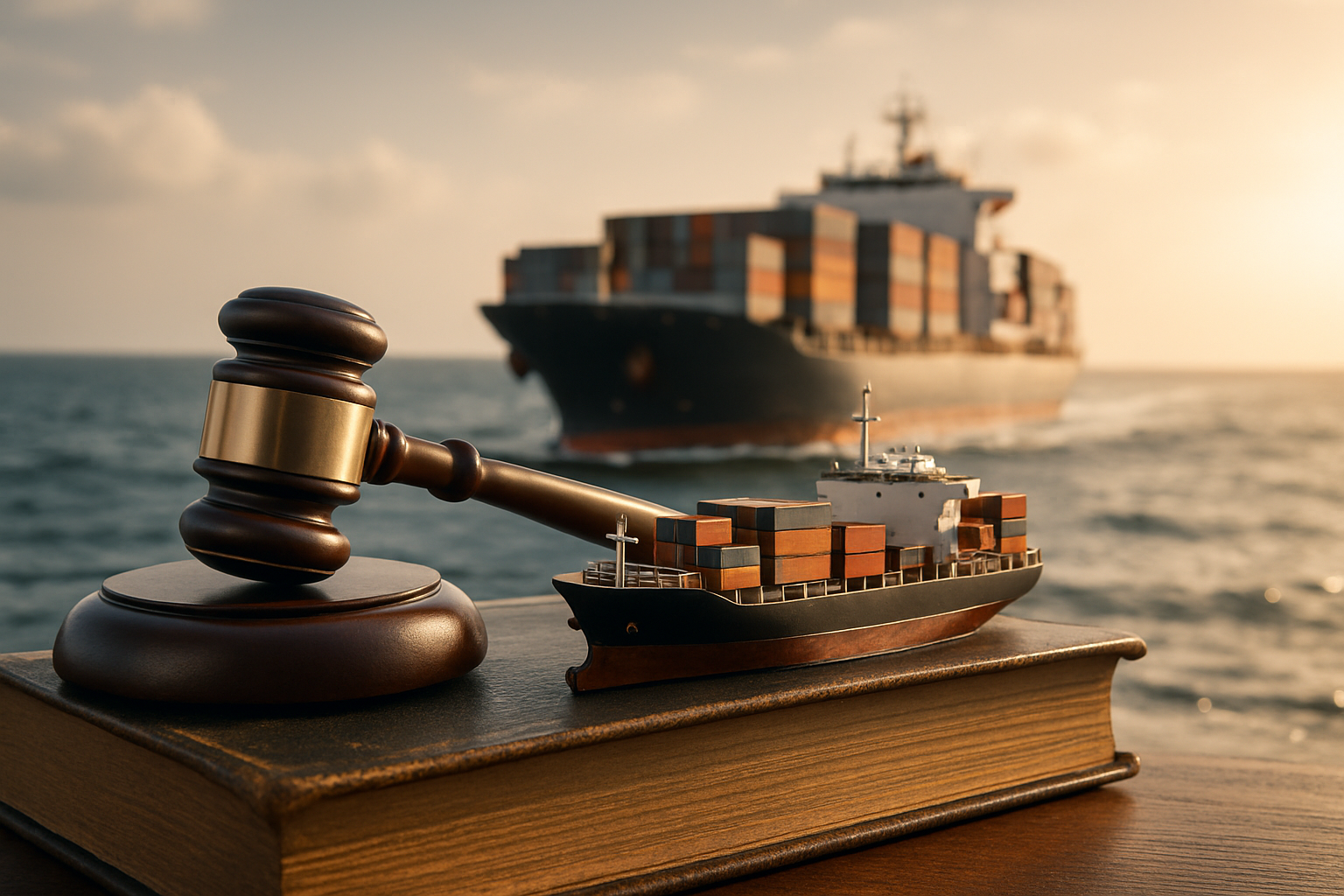Admiralty Law: The Hidden Force Shaping Global Commerce
Introduction: In the vast realm of international trade and maritime affairs, a little-known but powerful legal framework governs the seas. Admiralty law, also known as maritime law, plays a crucial role in regulating global commerce, resolving disputes, and ensuring safety on the world's waterways. This article delves into the intricacies of admiralty law, exploring its historical roots, modern applications, and profound impact on the global economy.

The Evolution of Maritime Legal Principles
As trade routes expanded and naval technology advanced, admiralty law evolved to meet new challenges. The medieval period saw the development of important legal concepts, such as the law of salvage and the principle of general average. These principles continue to form the backbone of modern maritime law, adapting to the complexities of contemporary shipping and international trade.
Jurisdiction and Scope of Admiralty Law
One of the most distinctive features of admiralty law is its unique jurisdictional reach. Unlike other areas of law that are typically bound by national borders, admiralty law operates on a transnational level. Courts exercising admiralty jurisdiction can hear cases involving foreign vessels, crews, and incidents that occur in international waters. This expansive jurisdiction reflects the inherently global nature of maritime commerce and the need for uniform legal principles across national boundaries.
Key Areas of Modern Admiralty Law
Today, admiralty law encompasses a wide range of legal issues related to maritime activities. These include ship collisions, cargo disputes, marine insurance, maritime liens, and environmental regulations. The law also addresses labor rights for seafarers, piracy, and the complex web of international conventions governing the shipping industry. As global trade continues to grow, the importance of admiralty law in resolving cross-border disputes and maintaining order on the high seas has only increased.
Admiralty Law and Environmental Protection
In recent decades, admiralty law has taken on a crucial role in addressing environmental concerns related to maritime activities. The development of international conventions such as MARPOL (International Convention for the Prevention of Pollution from Ships) has created a legal framework for preventing and responding to marine pollution. Admiralty courts now play a significant role in enforcing these environmental regulations, balancing the interests of commerce with the need to protect marine ecosystems.
The Impact of Technology on Maritime Law
The rapid advancement of technology in the shipping industry has presented new challenges for admiralty law. The rise of autonomous vessels, cybersecurity threats, and the use of blockchain in shipping documentation are reshaping the legal landscape. Admiralty courts and lawmakers are grappling with questions of liability, jurisdiction, and evidence in an increasingly digital maritime environment. These technological developments are pushing the boundaries of traditional maritime law and necessitating innovative legal approaches.
Admiralty Law and Global Economic Stability
The significance of admiralty law extends far beyond the shipping industry itself. By providing a stable legal framework for maritime commerce, admiralty law plays a crucial role in maintaining global economic stability. It facilitates international trade by offering predictable mechanisms for dispute resolution, risk allocation, and contract enforcement. In an era of complex supply chains and just-in-time logistics, the smooth functioning of maritime law is essential for the health of the global economy.
Challenges and Future Directions
As the maritime industry continues to evolve, admiralty law faces several challenges. Climate change and its impact on shipping routes, particularly in the Arctic, are raising new legal questions. The need for harmonization of maritime laws across different jurisdictions remains an ongoing concern. Additionally, the growing importance of data protection and privacy in maritime operations is creating new areas of legal complexity. These challenges will shape the future development of admiralty law, requiring adaptability and innovation from legal practitioners and policymakers alike.
In conclusion, admiralty law stands as a testament to the enduring importance of specialized legal frameworks in governing complex global activities. From its ancient origins to its modern applications, maritime law continues to evolve, adapting to new technologies, environmental concerns, and economic realities. As global trade expands and the maritime industry faces new challenges, the role of admiralty law in shaping the future of international commerce and maritime affairs remains more critical than ever.






